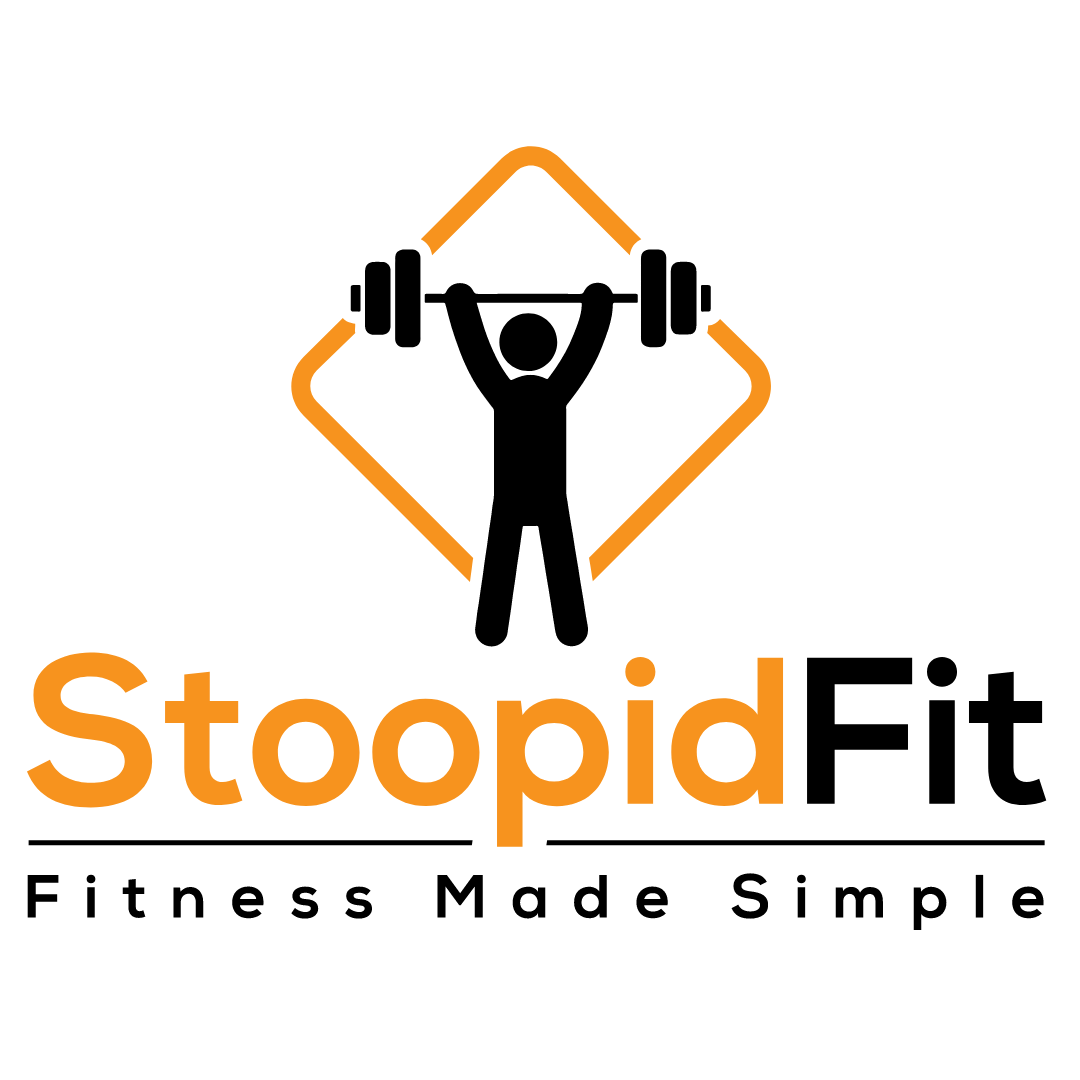When it comes to building muscle mass, getting stronger, or getting that toned look; there are a number of strategies that you can use to accomplish that between your training and nutrition.
Which are, of course, the biggest indicators of progress.
However, when it comes to training, one aspect is often overlooked and underappreciated:
The Mind-Muscle Connection, this bond between your brain and the muscle that you’re training in a particular exercise.
Arnold Shwazeenegrer was quoted as saying, “You need to put your mind in your muscle.”
But is the Mind-Muscle Connection actually a real thing or just bro-science?
Does it even matter at all if you have “good form”?
Will it help improve your strength in the gym?
What about improving your physique?
Let’s dive into it and see what it’s all about
What is the Mind-Muscle Connection?
As you probably already know, all movement that your body goes through is controlled by your brain. Walking, bike riding, and even reading this article starts with your brain sending a signal to your body to perform those tasks.
Similarly, the first step to contracting your muscles while training is a signal that your brain sends to tell them to contract. The Mind-Muscle Connection (MMC) occurs at the “neuromuscular junction” which is where the mind meets the body.
Your brain sends these neurotransmitters to the neuromuscular junction and binds to these receptors on the surface of the muscle fibers to ultimately contract your muscle.
I know pretty science-y but it’s important to be aware of because the more that you can improve this communication between your brain and your muscles, the more muscle fibers that you can recruit to perform an exercise which then leads to:
- A better quality muscle contraction
- Increased muscular strength (not peak strength)
- Improved lean muscle development
- Greater calorie burn
It’s a lot like coordinating a group of people to do an activity.
Let’s say you’re trying to get a crowd of people to pick up a car because it’s stuck in a massive pothole. If you tried to do it on your own, you probably wouldn’t move it much, if at all. However, if you call over the crowd of people watching you to help you out AND you get everyone to lift simultaneously – the car can get lifted much more easily.
It’s the same idea: recruit more muscle fibers -> lift more weight -> get better results!
Isn’t good form in my lifting enough?
There’s a subset of strength coaches and physical therapists that believe regardless of your thoughts, as long as your form is good enough, you’ll get the results you want – but is that really true?
Dr. Bret Contreras actually tested this out for himself and posted the results over on T-Nation.
Basically, they hooked up EMGs on different muscles to measure muscle activation and tested this out for both lower and upper body exercises.
They took 4 lower body exercises (squats, RDL, Hip thrusts, Back extensions) and went through two trials of each exercise – one where they focused on the glutes and one where they didn’t.
They also did the same with 4 upper body exercises as well (Bench Press, Push-Up, Chin-Up, Inverted Row) and shifted focus between the primary muscle group (Chest or Lats) and the secondary muscle (Tricep or Bicep).
Here are the results:


As you can see across virtually every lift, the muscle that was focused on was able to be activated significantly more than the other muscle groups! This just goes to show that form isn’t enough when it comes to getting proper muscle recruitment, you need to have a strong MMC to get the most out of your recruitment.
So for those of you trying to build up a certain muscle group (glutes, chest, arms) MMC will have a massive impact on that!
How Can You Improve Your Mind Muscle Connection?
Now that we understand how effective the Mind-Muscle Connection is, how can we get better at it?
I’ve found that most new lifters have trouble properly establishing an MMC, particularly with pulling movements where the lats need to be activated.
All isn’t lost though, this is a skill that you learn and can master but just like with any other skill you need to practice it to get good with it!
Here are a few things you can start doing to improve your MMC:
Slowing Down The Tempo
It’s hard to establish any kind of connection with your muscles if you’re repping things out faster than you can focus. Slowing down the movement so that you are more mindful and present of each and every rep will help you feel your muscles actually working – which is what this is all about.
Ideally, you want to move at a pace where you can feel your muscle get a good stretch at the eccentric phase and a strong contraction at the concentric phase.
For a bench press, this means that you want to feel your chest stretch when the bar is at the bottom and squeeze together at the top.
For a lat pulldown, this means you want to feel your lats stretch when the bar is overhead and tighten up when the bar is at your chest.
For an RDL, this means that you want to feel your hamstrings/glutes stretch when the weight is closer to the floor and tighten up when you’re standing up.
For a squat, this means that you will want to feel your quads/glutes stretch at the bottom of your squat and tighten up when you’re standing up.
You can do this with literally any exercise. Slowing down really helps you connect with your muscle as it moves through the entire motion of the exercise and will maximize muscle fiber recruitment for you.
Lower The Weight
Following up with the point of slowing down the tempo, you can’t really do that with a heavier weight. You gotta be ok with leaving your ego at the door and focusing on execution more than weight lifted for a period of time. This might seem like a “setback” but in reality, you’ll have much better progress with your physique when you lift at a lighter weight with a stronger MMC than heavier weights with little or no MMC.
Isolation
This is a great one to incorporate because this is your chance to work one muscle directly for a period of time so you don’t have to worry about anything else but this one muscle being worked.
When you train the muscle directly it helps with targeting that muscle in compound movements as well as improving any imbalances/weakness you might have.
I always find it best to incorporate isolation exercises at the beginning of the workout to “activate” the muscle so you can have a better feel for it in your training. Bodyweight exercises at a higher rep count are my general preference in these scenarios.
For instance, 2-3 rounds of 12-15 reps of Frog pumps before squats or deadlifts will improve glute activation in those exercises.
You can also do 2-3 rounds of 12-15 reps of ½ Kneeling Lat Pullins will help improve lat activation in your pulling movements.
Lastly, doing a 2-3 30-45sec Palm squeezes will improve chest activation for your horizontal pushing movements.
Flexing
This one sounds silly but it’s actually been shown to help a ton with muscle activation in training. Flexing the muscle you’re working in between sets of the exercise has been shown to increase muscle fiber recruitment in the exercises.
So the bros that are flexing in the mirror between sets are actually improving their muscular development when they do that, who would’ve thought?
Summary
So when it comes to the Mind-Muscle Connection it’s a powerful and necessary tool to help you:
- Increase muscle fiber recruitment
- Improve muscular hypertrophy
- Improve lean muscle development
- Burns more calories
- Strengthens joint and movement patterns
- Compensates for asymmetries/imbalances
Which is something I think we can all make more use of. The best part of it you can start working on this in your very next training session!
If you need a little extra help with a training program, you can schedule a free strategy call with one of our coaches so we can get you headed in the right direction!
Resources:
- https://www.ncbi.nlm.nih.gov/pubmed/28500415
- https://www.ncbi.nlm.nih.gov/pubmed/26896956
- https://www.ncbi.nlm.nih.gov/pubmed/26700744
- https://www.ncbi.nlm.nih.gov/pmc/articles/PMC6615069/
- https://www.t-nation.com/training/mind-muscle-connection-fact-or-bs
- https://www.bodybuilding.com/content/4-tips-to-help-train-your-brain-massive-gains-mind-muscle-connection.html
- https://tailoredcoachingmethod.com/mind-muscle-connection/






